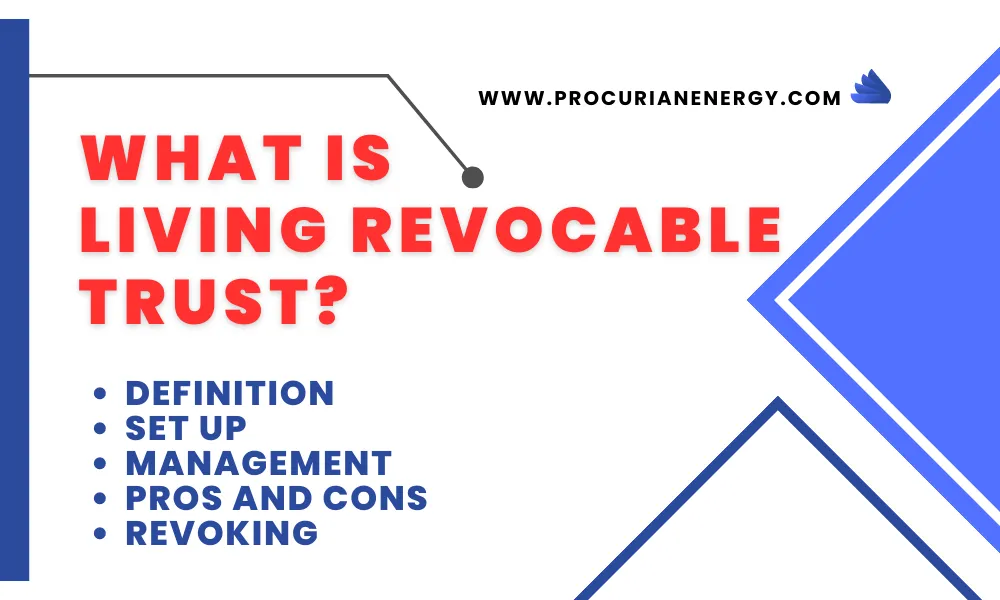Medicaid is a government scheme that provides low-income people and families with healthcare coverage.
While Medicaid provides critical assistance for medical bills, eligibility is conditional on reaching certain asset requirements.
Individuals and couples who have worked hard to amass possessions may feel distressed by the potential of losing them.
However, with careful preparation and intelligent decision-making, you may save your assets while still qualifying for Medicaid when necessary.
We will give you with a complete guidance on how to protect your assets from Medicaid’s reach in this blog.
Understanding Medicaid Asset Limits
Before diving into asset protection strategies, it is important to have a clear understanding of Medicaid’s asset limits.
Medicaid considers certain assets as “countable” while others are “exempt.”
Countable assets include cash, bank accounts, investments, real estate (other than a primary residence) and some personal items.
Exempt assets typically include a primary residence, household belongings, one vehicle, prepaid funeral and burial plans and a limited amount of life insurance.
Understanding these distinctions will help you develop effective asset protection strategies.
Advanced Planning Strategies

1. Creating an Irrevocable Trust
An irrevocable trust is a legal arrangement in which assets are transferred out of your ownership and control.
By placing your assets in this type of trust, they are no longer considered countable assets for Medicaid eligibility purposes.
It is crucial to consult an attorney experienced in elder law to create and fund an irrevocable trust properly.
2. Gifting and Transferring Assets
Gifting or transferring assets to family members or trusts can be an effective strategy to protect assets.
However, Medicaid has strict rules regarding gifting, including look-back periods and penalties for improper transfers.
Understanding these rules and consulting with a professional advisor can help you navigate the gifting process while complying with Medicaid regulations.
3. Purchase of Exempt Assets
Investing in exempt assets is another way to protect your assets from Medicaid.
Exempt assets such as a primary residence or a vehicle are not counted towards the asset limit.
By strategically allocating your funds into these exempt assets, you can maintain their value while still qualifying for Medicaid.
Utilizing Life Estate Deeds
A life estate deed allows you to transfer your property to beneficiaries while retaining the right to live in the property until your passing.
This strategy can protect your real estate assets from Medicaid’s asset calculations.
However, it is critical to speak with an estate planning and Medicaid attorney to guarantee the legality and efficacy of this method.
Long-Term Care Insurance
Purchasing long-term care insurance may be an effective approach for protecting your assets while ensuring you have access to critical healthcare treatments.
Long-term care insurance plans cover the costs of:
- nursing homes,
- assisted living and
- home healthcare,
eliminating the need to rely only on Medicaid for long-term care expenses.
Seek Professional Assistance
Navigating the complexities of Medicaid asset protection requires expert guidance.
Consulting an elder law attorney or financial planner who specializes in Medicaid planning can provide invaluable insights and ensure you make informed decisions.
These professionals will tailor strategies to your unique circumstances and help you stay compliant with changing Medicaid regulations.
Staying Updated on Medicaid Laws
Medicaid laws and regulations evolve over time, and it is essential to stay informed.
Regularly review your asset protection plan and consult with professionals to make necessary adjustments.
Various resources such as government websites, legal publications and expert blogs, can help you stay updated on the latest Medicaid rules and policies.
Medicaid Loopholes
While I can provide some examples of situations that have been exploited in the past, I want to emphasize that engaging in any fraudulent activities is not advisable or ethical. It’s always best to use government programs in the intended and honest manner.
1. Asset Transfers- Some individuals may transfer or gift their assets to others such as family members, in an attempt to reduce their own assets and qualify for Medicaid.
However, Medicaid has strict rules regarding asset transfers, and deliberately transferring assets solely for the purpose of qualifying for Medicaid can result in penalties and a period of ineligibility.
2. Income Shifting- Income shifting involves manipulating income or assets to appear as if an individual or household has lower income, thus qualifying them for Medicaid.
This can include underreporting income, hiding assets or funneling income through other individuals or entities.
Again, these actions are illegal and can lead to severe consequences.
3. Trusts- Certain types of trusts, such as irrevocable Medicaid trusts, have been used in the past to shelter assets and still qualify for Medicaid coverage.
Medicaid has implemented stricter regulations and limitations on these trusts to prevent abuse and ensure that individuals genuinely meet the eligibility criteria.
4. Home Equity- Medicaid eligibility typically considers an individual’s home equity.
In some cases, individuals may attempt to reduce their home equity by transferring ownership to family members or creating complex legal arrangements.
What Risks Can You Face?
There are some risks that you might face while Protecting Assets From MEDICAID:
1. Medicaid eligibility rules- Medicaid has strict eligibility requirements including income and asset limits, which individuals must meet to qualify for benefits.
Engaging in certain asset protection strategies with the intent to qualify for Medicaid may be subject to scrutiny by the Medicaid agency.
If they determine that you have engaged in fraudulent transfers or improper asset shielding, you could face penalties, disqualification or a period of ineligibility for Medicaid benefits.
2. Look-back period – Medicaid has a “look-back” period during which they review an applicant’s financial transactions to identify any asset transfers made for less than fair market value.
The look-back period is typically five years, but it can vary by state. Transferring assets during this period can result in a penalty period of ineligibility for Medicaid benefits.
The penalty period is determined based on the value of the transferred assets and the state’s Medicaid policies.
3. Limited control over assets – Asset protection strategies often involve transferring assets to irrevocable trusts or other entities. Once assets are transferred, you may lose direct control over them.
Trusts typically have appointed trustees who make decisions regarding the assets and you may have limited ability to access or use the assets for personal purposes.
4. Financial risks – Engaging in asset protection strategies may involve certain financial risks.
For example, transferring assets to an irrevocable trust may result in loss of liquidity or difficulty in accessing funds when needed.
Additionally, the costs associated with establishing and maintaining trusts or engaging legal and financial professionals can be significant.
5. Changing Medicaid rules – Medicaid rules and regulations can change over time, and the strategies that are currently accepted or effective may become outdated or ineffective in the future.
It’s important to stay informed about any changes in the Medicaid program and reassess your asset protection strategies accordingly.
Difference between Medicare and Medicaid
| Medicare | Medicaid | |
|---|---|---|
| Purpose | Provides healthcare coverage for seniors | Provides healthcare coverage for low-income individuals and families, including some seniors |
| Eligibility | Available to individuals aged 65 and older, certain younger individuals with disabilities, and individuals with end-stage renal disease (ESRD) or amyotrophic lateral sclerosis (ALS) | Available to low-income individuals and families, including children, pregnant women, parents of eligible children, and individuals with disabilities |
| Funding | Funded by the federal government | Funded jointly by the federal and state governments |
| Coverage Options | Consists of several parts: Medicare Part A (hospital insurance) Part B (medical insurance) Part C (Medicare Advantage) Part D (prescription drug coverage) | Coverage varies by state, but typically includes hospital stays, doctor visits, prescription drugs, long-term care and other medical services |
| Cost-sharing | Requires premiums, deductibles and copayments for certain services | Coverage may be provided with little or no cost-sharing, depending on income and other factors |
| Administration | Administered by the Centers for Medicare & Medicaid Services (CMS) | Administered jointly by the federal and state governments, with states having flexibility in implementing their programs |
| Enrollment | Individuals can enroll during designated enrollment periods | Individuals can apply for Medicaid at any time, and enrollment is based on eligibility criteria |
FAQs related to protecting assets from medicaid
How to protect retirement assets from medicaid?
To protect retirement assets from Medicaid, consider the following strategies:
1) Convert countable assets into exempt assets, such as home equity or annuities.
2) Establish an irrevocable trust to transfer assets while meeting Medicaid eligibility requirements.
3) Purchase long-term care insurance to cover potential healthcare expenses.
4) Consulting an elder law attorney is crucial for personalized advice.
What is an irrevocable trust?
An irrevocable trust is a legal arrangement in which the creator transfers assets to a trustee, relinquishing ownership and control. The conditions of the trust, once formed, cannot be modified without the permission of all beneficiaries. It provides asset protection, estate planning benefits and can minimize tax obligations.
How to protect your assets from medicaid in FLORIDA?
To protect your assets from Medicaid in Florida, you can consider the following options:
1) creating an irrevocable trust.
2) transferring assets to a spouse or disabled child.
3) purchasing exempt assets like a home or vehicle.
4) converting assets into income streams.
How to protect assets from medicaid in TEXAS?
To protect assets from Medicaid in Texas, consider strategies like creating an irrevocable trust, transferring assets at least five years before applying for Medicaid, using exempt assets and resources.
How to protect assets from medicaid in OHIO?
To protect assets from Medicaid in Ohio, consider these options: transferring assets more than five years before needing long-term care, setting up an irrevocable trust, purchasing long-term care insurance, utilizing spousal protections and consulting with an elder law attorney to explore legal strategies specific to your situation.
How do I protect my assets from Medicaid in NY?
To protect assets from Medicaid in New York, you can consider options such as creating Irrevocable Trust, Special Needs Trust, Irrevocable Life Insurance Trust, Revocable Trust & Charitable Trust.
Is Offshore asset protection a solution?
Offshore asset protection can be a solution for individuals seeking to safeguard their wealth from legal, financial or political risks. It offers benefits such as increased privacy, asset diversification and potential tax advantages.
Is it legal to hide assets?
The legality of hiding assets depends on the context and intent. Engaging in fraudulent activities to conceal assets is generally illegal, such as hiding assets to evade taxes or defraud creditors. However, legal methods of asset protection such as through trusts or legitimate tax planning are allowed. Seek legal advice for specific situations.
Conclusion
Protecting your hard-earned assets from Medicaid is a complex process, but with proper planning and professional assistance, it is achievable.
By understanding Medicaid’s asset limits, implementing advanced planning strategies like establishing an irrevocable trust or gifting assets, utilizing life estate deeds, considering long-term care insurance, seeking professional assistance and staying updated on Medicaid laws, you can safeguard your assets while still being eligible for Medicaid when the need arises.







